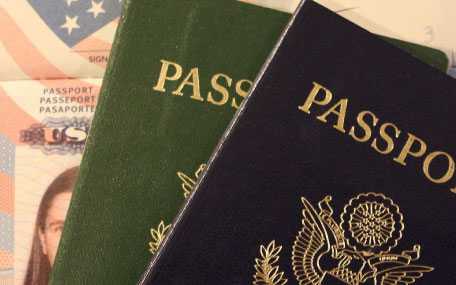One of life’s most important lessons is distinguishing what is trivial from what is not. That is especially true with your important papers.
Your most important household papers should include any family, property, financial, and legal papers that legitimize and protect you, your family, and your estate. They document identification, ownership, legal and financial status, employment, education, and family history.
In a genuine emergency, how quickly could you access your birth certificates, immunization records, wills, vehicular and property titles, or insurance policies? Did you file them away and, if so, where? How long would it take to find—or replace—them?
A systematic plan for keeping track of important papers can save hours of anxious searching. When something happens to us, it will allow your loved ones to readily locate your health-care powers of attorney, insurance policies, medical records, and outstanding bills. If you should experience fire, flood, or theft, you can lay your hands on essential documents without delay. If you’re meeting with an attorney or financial adviser, you can prepare in an hour rather than a week. Even on an everyday basis, systematic recordkeeping makes it easier to pay bills on time and find receipts. It is never too late to start being organized.
To begin you will need to:
- Identify and inventory important papers. FEMA has an Emergency Financial First Aid Kit to help you determine which documents are the important ones: EFFAK Toolkit (fema.gov)
- Organize your home office or “office space”
- Organize and/or replace important papers
- Set realistic goals for getting organized
Whether you have a home office or a kitchen table for paying bills and keeping records, your job will be more difficult if you accumulate stacks of papers. As you deal with important papers or open your bills, it’s best to handle each as little as possible and to file it immediately. Or have a designated box, basket, or envelope to hold the mail until you have time to process it.
Important family, property, financial, and legal papers should be kept in the following locations:
- Wallet or Purse
- Your driver’s license or alternative personal identification
- One or two credit cards that you use often
- Your health insurance or Medicare card (unless it has your Social Security number on it)
- Your blood type, organ donor card, and special medical information like a list of your medications including the name and telephone number of your family physician
- Make sure all cards and other information are current and never carry anything with our Social Security number.
- Home Files (including computer disks (CDs) and jump/thumb drives)
- Current files contain papers that you need frequently. They should be located in the most accessible file cabinet, desk or box. You can also store some of them on a computer hard drive that is backed up consistently to a computer disk or jump/thumb drive. Examples: Bank and credit union statements, bills to pay and paid bills, medical information
- Permanent files contain papers that you need less often. Because you don’t handle these papers frequently, you can store them in a less accessible location or on a computer disk or jump/thumb drive that you update frequently and can be removed quickly in case of a fire, flood, or another emergency. Examples: Education records, employment records, and working copies of your household property inventory and a Record of Important Papers
- ”Dead storage” files — perhaps a box or old file cabinet located in your attic, basement, or closet — are for records that are very rarely used but that may be needed one day. Example: Past income tax records.
- Safe-Deposit Box (or home safe)
- Information that is difficult or impossible to replace should be stored in a safe-deposit box or fireproof, waterproof, burglar-proof home safe. Copies can be saved to a portable drive for easy access in an emergency. Examples: Birth certificates, wills, real estate deeds, Record of Important Papers, household property inventory, back-up copies of other important papers.
Be sure that your spouse or a designated family member knows where to find those important papers. Join Poolesville Seniors and Sarah Hedlund from the Montgomery History Speaker’s Bureau on September 8th at 7:00 p.m. when she explains the basics of organizing and preserving your family’s history in documents and photographs for future generations.

